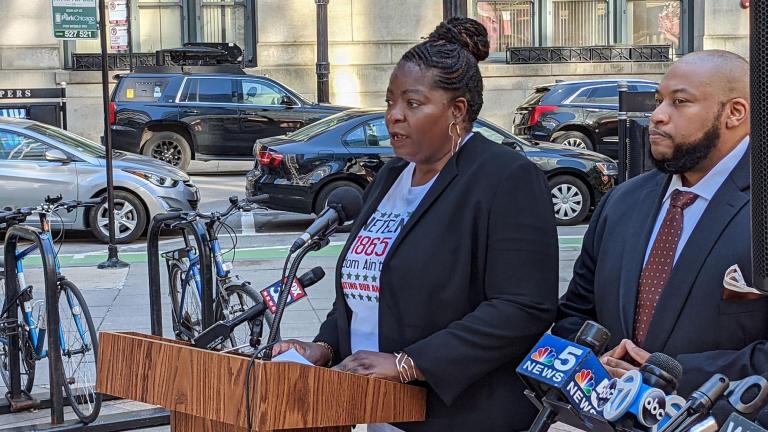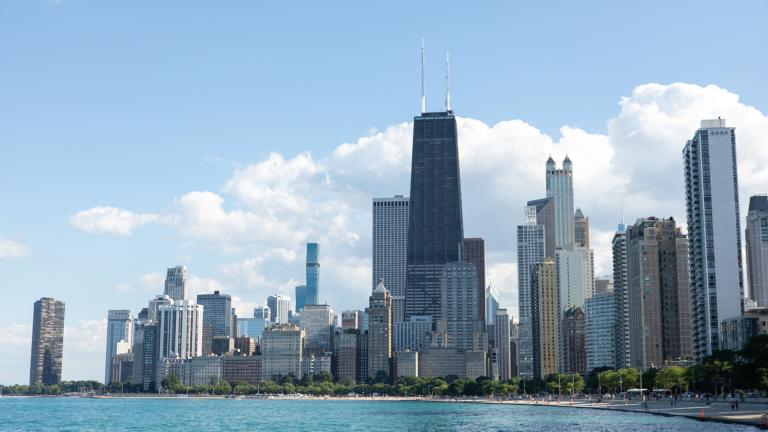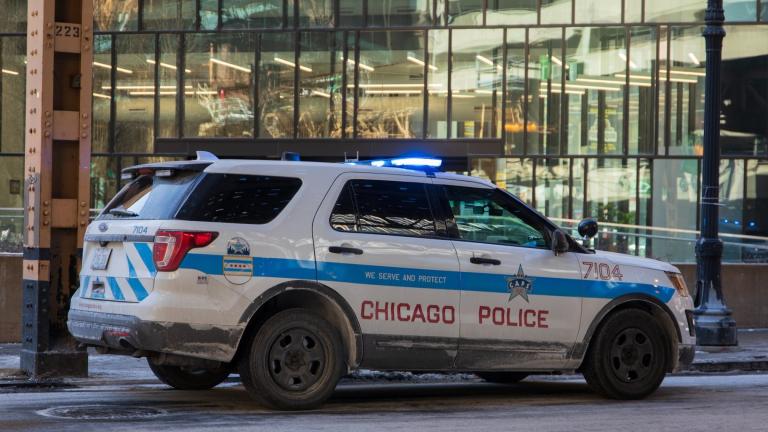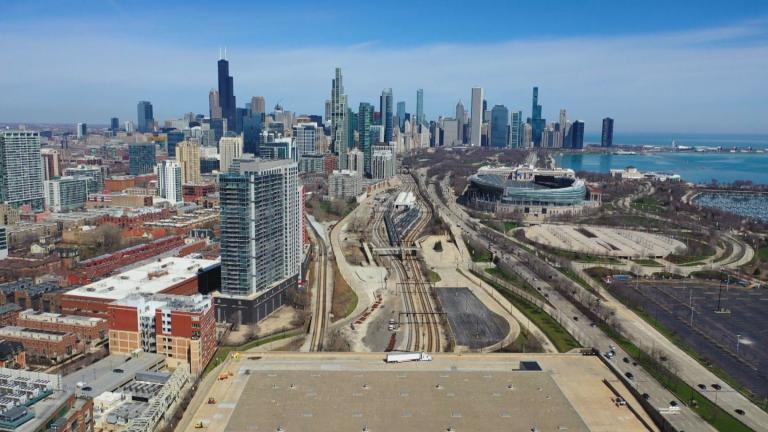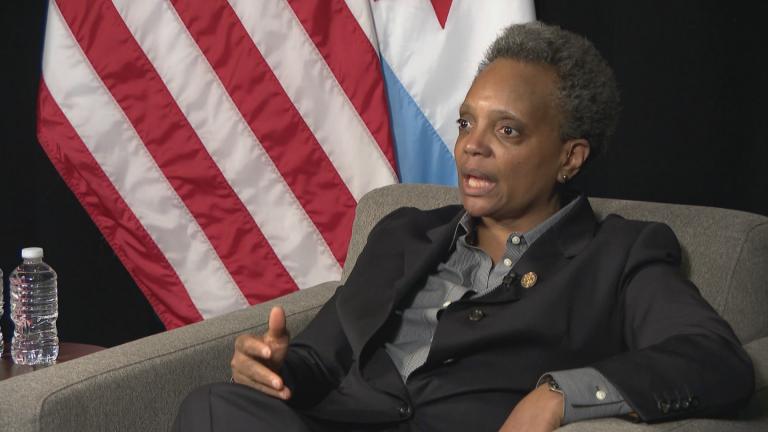Mayor Lori Lightfoot and her allies on the Chicago City Council blocked a Monday hearing on a proposal to ask voters during the February election to hike taxes on the sales of properties worth $1 million or more in an effort to fight homelessness in Chicago.
Dozens of Chicagoans who waited hours to get their turn to address the Chicago City Council for three minutes were prevented from speaking. Only 25 City Council members attended the meeting — one short of the majority needed to hold the public hearing.
At least nine other alderpeople — all allies of the mayor — were at City Hall at the time of the crucial vote but declined to participate in the hearing, even as their colleagues exhorted them to particpate.
Supporters of the proposal say the change will help the nearly 66,000 Chicagoans who are unhoused by generating approximately $160 million annually — enough to address the root causes of homelessness and reduce crime and poverty throughout Chicago, they say.
After Ald. Brendan Reilly (42nd Ward), presiding in the place of an absent Mayor Lori Lightfoot, pulled the plug on the meeting, April Harris, of the Chicago Coalition for the Homeless, said she was furious that half of the City Council would “rather do what the mayor tells them to do than do their job.”
Ald. Maria Hadden (49th Ward), one of the champions of the ordinance known as Bring Chicago Home, acknowledged that the supporters of the plan “hit a roadblock” but vowed to keep pushing.
Ald. Carlos Ramirez Rosa (35th Ward) said Chicagoans deserve more from their elected representatives.
“I’m angry,” Ramirez Rosa said. “It is not right. Chicago deserves more.”
The proposal would not change the Real Estate Transfer Tax paid by the buyers of properties worth less than $1 million, keeping the city’s share of the tax at $3.75 for every $500 of the sale price. But when properties sell for $1 million or more, the new owner would pay $13.25 for every $500 of the sale price. That works out to an increase of 253%, according to the proposal.
The measure would not change the share of the transfer tax — $1.50 for every $500 of the sale price — that helps fund the CTA, according to the proposal.
Under the current law, the buyer of a home worth $300,000 pays the same flat transfer tax as the buyer of a multimillion-dollar mansion or downtown skyscraper — a fact that supporters of the change said is unfair.
State law does not give the Chicago City Council the power to change the transfer tax on its own authority. Without legislation passed by the General Assembly and signed by the governor, the measure needs the support of Chicago voters through a referendum before the City Council can levy the tax and collect the funds.
The first step in that process is to hold a public hearing, which was to have taken place Monday.
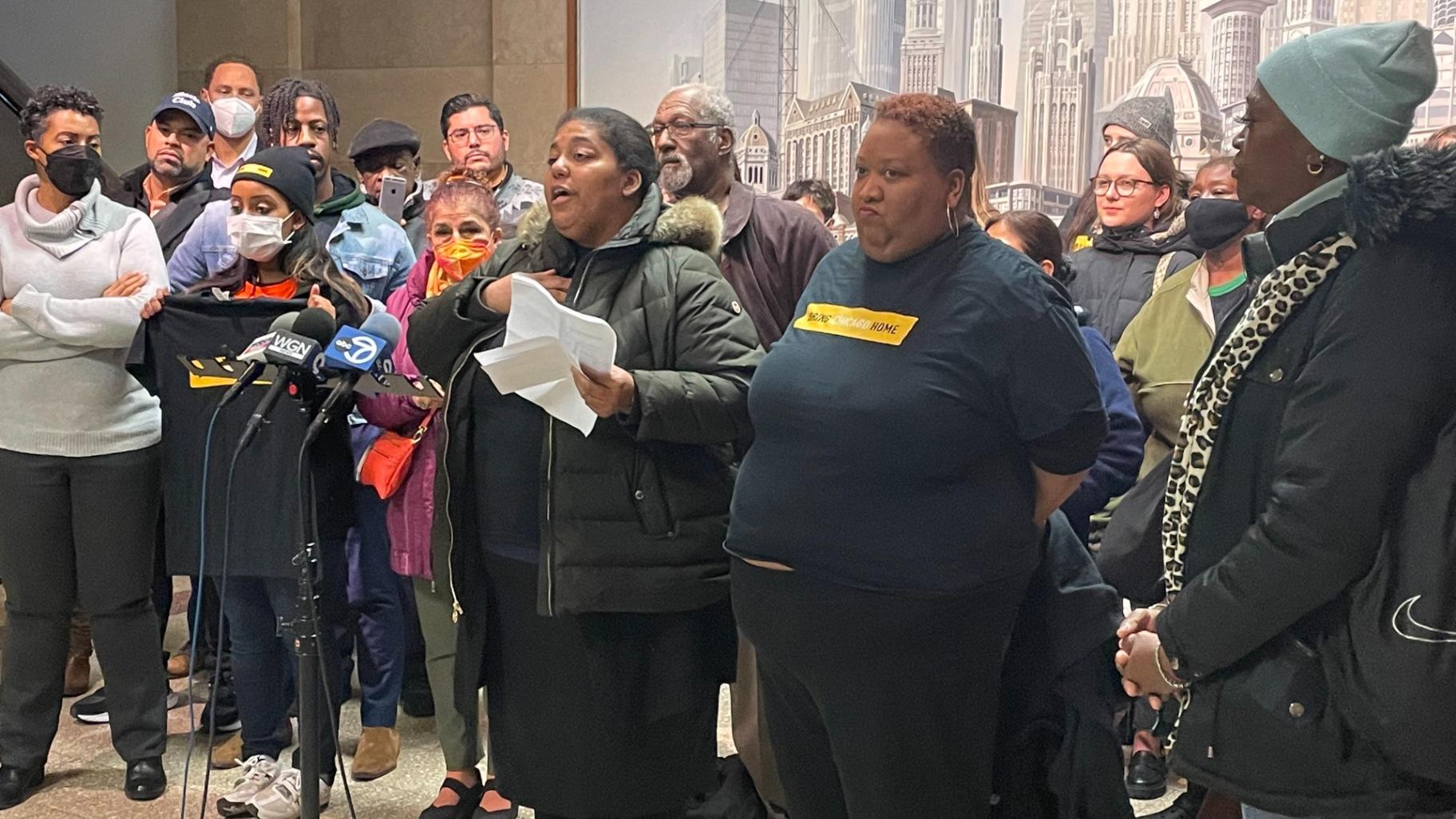 Members of the Chicago Coalition for the Homeless blast half of the City Council for failing to show up for a hearing on a proposal to tax the sale of properties worth more than million to fight homelessness on Monday, Nov. 14. (Heather Cherone / WTTW News)
Members of the Chicago Coalition for the Homeless blast half of the City Council for failing to show up for a hearing on a proposal to tax the sale of properties worth more than million to fight homelessness on Monday, Nov. 14. (Heather Cherone / WTTW News)
The inability of supporters of the proposal to get a majority of City Council members to attend that public hearing is an indication that they are unlikely to put the question to voters, especially since Lightfoot now opposes the proposal, even though it was part of her 2019 mayoral campaign platform.
Lightfoot told reporters Nov. 7 that the change would be “spun as a property tax increase.”
The issue is on the agenda for the meeting of the City Council’s Rules Committee scheduled for 2 p.m. Tuesday, but Ramirez-Rosa said it is not likely to be considered because it was added to the agenda too late to comply with state law.
There can be no more than three questions for voters to answer as part of the Feb. 28 election, which will also feature contests for mayor, clerk, treasurer and all 50 alderpeople.
Allies of the mayor have introduced proposals for three advisory questions to be included on the Feb. 28 ballot. If approved Wednesday by the City Council, there would be no way for the supporters of the Bring Chicago Home measure to put that proposal to voters because of limits on the number of ballot questions per election.
“This is clearly an attempt to bump our question off the ballot, without creating any meaningful change,” said Jess Schwalb, a member of Jewish Council on Urban Affairs in a statement released by the Chicago Coalition for the Homeless. That statement called Lightfoot’s move “old tricks.”
The three questions proposed by Lightfoot’s allies ask voters whether Congress should reinstate and strengthen the 1994 assault weapons ban, declare the lack of shelter and housing for people experiencing homelessness a public health crisis and whether the city should reject a new agreement with Commonwealth Edison until it refunds rate payers for the hike that is part of a bribery scandal.
Contact Heather Cherone: @HeatherCherone | (773) 569-1863 | [email protected]

